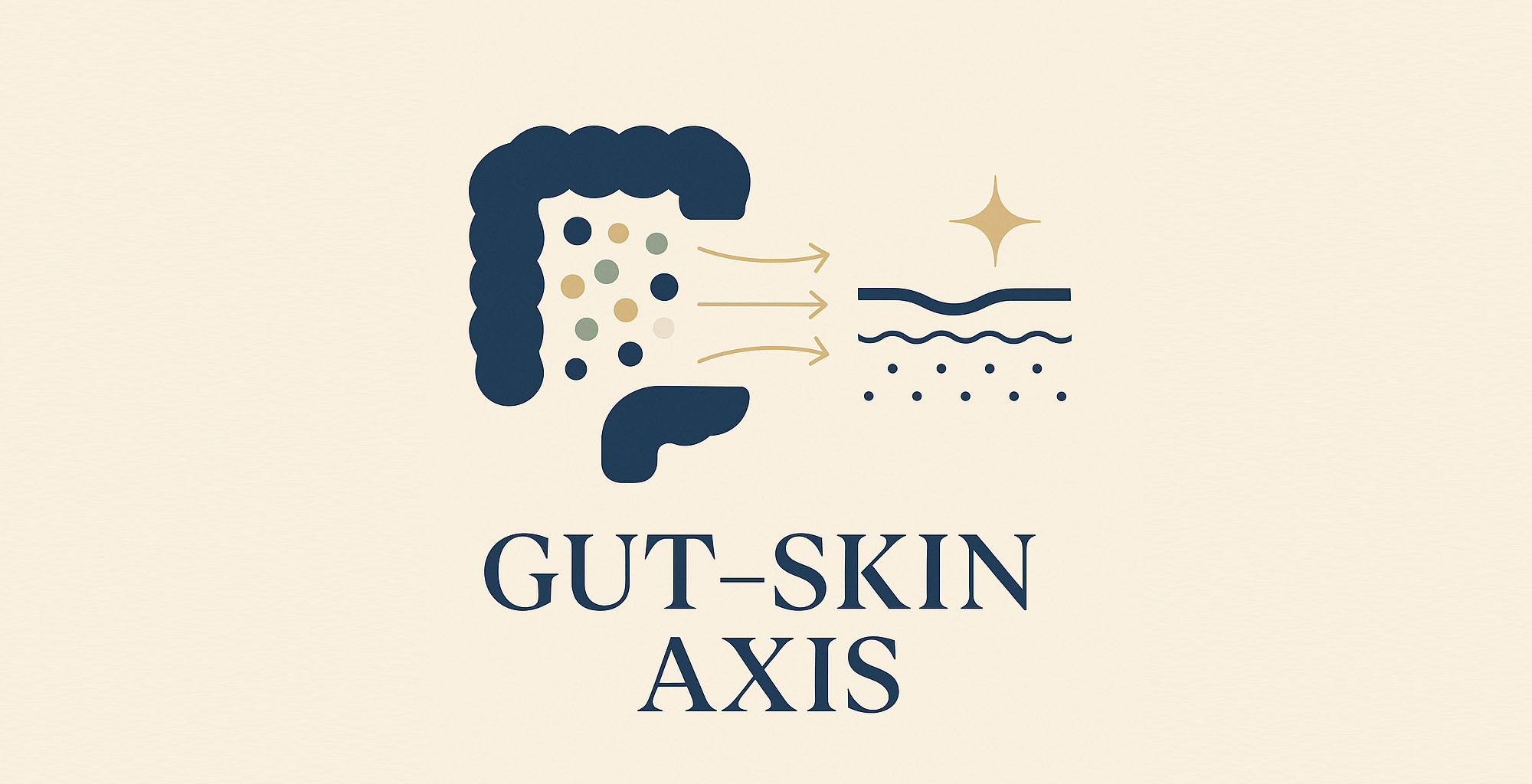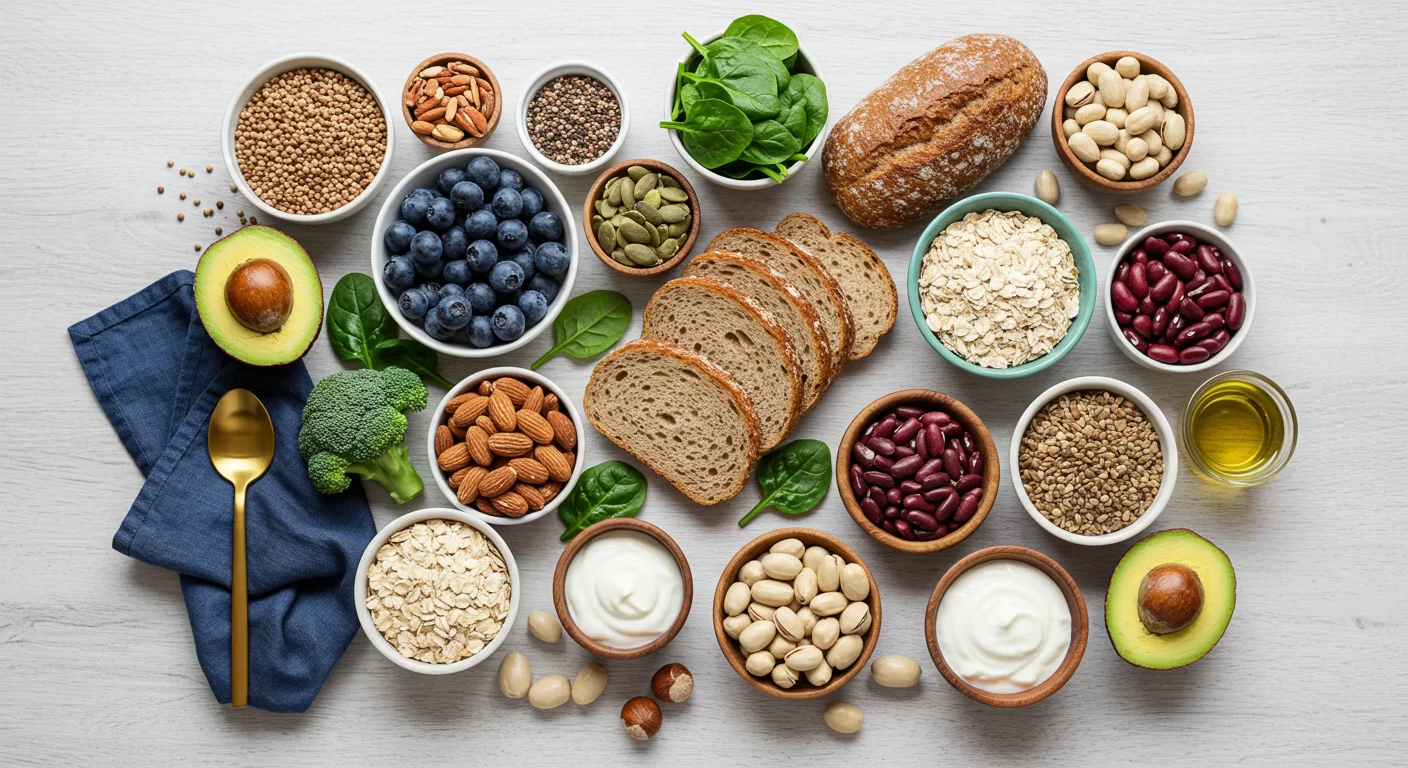What is "Collagen Banking"? Proactive Strategies for Long-Term Skin Vitality
While the popular term ‘collagen banking’ might sound like you can store collagen away for later, biologically, that’s not quite how it works. Instead, ‘collagen banking’ refers to a proactive, science-informed approach focused on strategies to support your body’s natural collagen production and protect the collagen you already have. Think of it as making consistent investments in your skin’s structural integrity for lasting health and radiance.
Collagen, the most abundant protein in our bodies, acts like scaffolding for our skin, providing essential firmness and elasticity. However, after our mid-twenties, our natural production begins a slow decline – roughly 1% per year. This process can accelerate significantly, particularly during and after menopause, where the decline can reach up to 30% in the initial years. Understanding this natural timeline underscores the importance of proactive measures.
By adopting “collagen banking” strategies, you empower yourself to counteract this natural decline, helping your skin remain resilient and vibrant for longer.
You can read our detailed article on the science behind Collagen production and depletion in our article Aging Gracefully: The Science Behind Skin Health and Boosting Collagen Synthesis

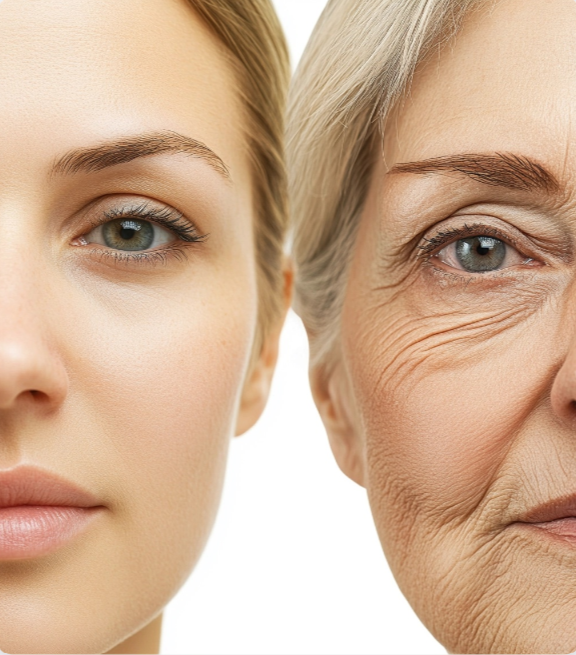
5 Science-Backed Ways to Support Collagen Synthesis & Preservation
Supporting your skin’s collagen network doesn’t require drastic measures. It involves integrating consistent, effective habits into your daily life. Here are five key strategies grounded in scientific understanding to help you invest in your skin’s future health.
1 Refine Your Skincare with At-Home Micro-Needling
Micro-needling, sometimes called collagen induction therapy, involves creating controlled micro-injuries to trigger the skin’s natural repair processes. While professional treatments offer significant collagen stimulation, carefully performed at-home micro-needling (using devices with short needles, typically 0.2mm – 0.25mm) plays a slightly different role.
- Primary Benefit: Its main advantage at home is significantly enhancing the absorption of beneficial skincare ingredients applied afterwards.
- Secondary Benefit: It can offer superficial skin rejuvenation and may provide mild stimulation of the skin’s repair mechanisms, potentially contributing modestly to collagen maintenance over time.
- Crucial Considerations: Strict hygiene is paramount. Always use a properly sterilized device on clean skin. Follow manufacturer instructions precisely to avoid irritation, infection, or other potential skin damage. If unsure, consult a dermatologist before starting
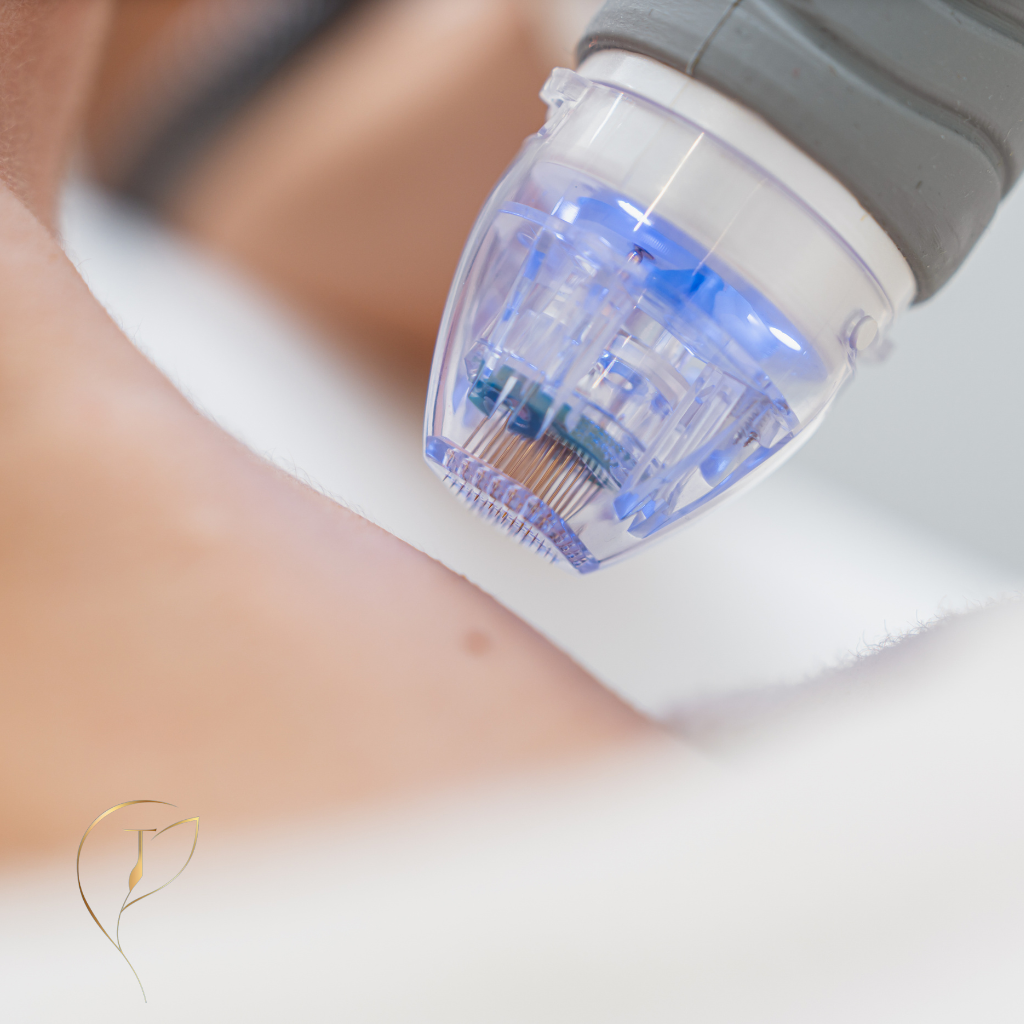
2 Incorporate Collagen Supplements
Ingestible collagen has gained significant traction. Research, including meta-analyses like a notable one from 2023, suggests that hydrolyzed collagen supplements can contribute to improved skin hydration and elasticity for some individuals.
- Why Hydrolyzed? The "hydrolyzed" form means the collagen protein is broken down into smaller peptides. This smaller size, particularly low molecular weight peptides, is thought to be more easily absorbed by the body.
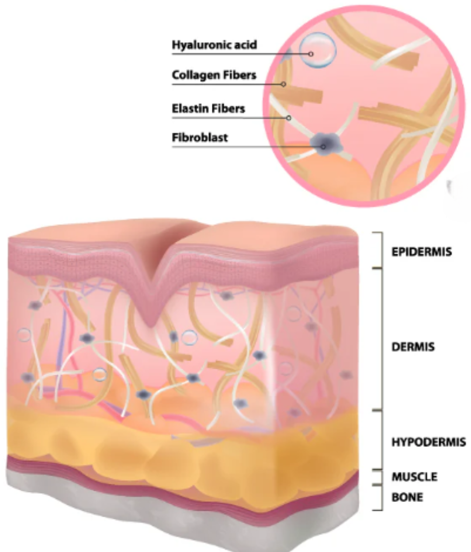
- How it Works: These absorbed peptides provide amino acid building blocks (like glycine, proline, hydroxyproline) that the body can use for its own collagen synthesis.
Important Caveats:
- Quality Matters: Absorption and effectiveness can vary based on the specific hydrolysis process and resulting peptide size.
- Body Prioritizes Needs: Your body will use these amino acids where it deems them most necessary – which might be joints, bones, or wound healing, not necessarily just the skin.
- Individual Results Vary: Effects depend on factors like age, diet, lifestyle, and supplement quality.
- Timeframe: Don't expect overnight results. Consistent use over several months (e.g., 3-6 months) is typically needed to observe potential benefits.
If you want to learn more about how can collagen supplement work, click here to read this peer review published on NCBI. You can also learn about “How Long it Takes Collagen Supplements to Work” in our dedicated article.
3 Fuel Collagen Production with Essential Nutrients
Your diet is fundamental to your body’s ability to build and maintain collagen. Certain nutrients play critical roles:
- Vitamin C (Essential): This is non-negotiable for collagen synthesis. It’s required for the chemical process (hydroxylation) that stabilizes the collagen molecule structure.
Dietary Sources:Abundant in citrus fruits (oranges, lemons), bell peppers (especially red), strawberries, kiwis, broccoli, and leafy greens like kale. - Zinc (Significant): This mineral acts as a co-factor for enzymes involved in collagen synthesis and cross-linking, contributing to its strength.
Dietary Sources: Found in oysters, red meat, poultry, beans, nuts (like cashews and almonds), and whole grains. - Vitamin A / Retinoids (Significant): Plays a role in stimulating fibroblasts (the cells that produce collagen) and regulating cellular turnover.
Dietary Sources: Preformed Vitamin A (retinol) is in liver, fish oils, eggs, and dairy. Provitamin A carotenoids (beta-carotene) are in orange/yellow vegetables (carrots, sweet potatoes) and dark leafy greens, which the body converts to Vitamin A. - Copper (Supporting Role): Also involved in enzyme function for collagen maturation.
Dietary Sources: Found in organ meats, shellfish, nuts, seeds, and whole grains. - Protein/Amino Acids (Building Block): Ensure adequate overall protein intake to supply the core amino acid building blocks


4. Prioritize Sun Protection: Your Primary Defense
This is arguably the single most crucial step for preserving collagen. Ultraviolet (UV) radiation from the sun is a primary driver of premature skin aging (photoaging). UV exposure generates free radicals that damage skin cells, including fibroblasts, and activate enzymes (MMPs) that actively break down existing collagen and elastin.

- Non-Negotiable Daily Practice: Make applying a broad-spectrum sunscreen with an SPF of 30 or higher an essential part of your morning routine, every single day, regardless of the weather or season. Reapply as needed, especially after sweating or swimming.
- Enhance Protection with Topical Antioxidants: Incorporating serums containing antioxidants like Vitamin C, Vitamin E, Ferulic Acid, or Resveratrol before your sunscreen adds another layer of defense. These help neutralize free radicals generated by UV exposure that sunscreen might not fully block.
- Additional Measures: Seek shade during peak sun hours (10 am - 4 pm), wear wide-brimmed hats, and UV-protective sunglasses.

5 . Stimulate Skin Renewal with Exfoliation and Peels
Regular exfoliation helps remove the buildup of dead skin cells from the surface, revealing brighter skin underneath. Importantly, certain exfoliation methods can also stimulate the skin’s natural renewal processes, indirectly encouraging collagen production over time.
- How it Works: By removing the outer dull layers and creating a controlled, superficial "injury," exfoliation signals the skin to repair and regenerate, which includes stimulating fibroblast activity.
- Methods:
- Chemical Exfoliants: Alpha-hydroxy acids (AHAs) like glycolic acid and lactic acid are effective for surface exfoliation and, at higher concentrations or with consistent use, can influence deeper renewal processes. Beta-hydroxy acids (BHAs) like salicylic acid are oil-soluble and good for congested skin. Mild TCA (Trichloroacetic Acid) peels are also an option, often performed professionally. Start with lower concentrations or gentle peel pads if new to chemical exfoliation.
- Physical Exfoliation: Gentle scrubs or cleansing brushes can remove dead cells but generally have less impact on stimulating collagen compared to chemical methods. Avoid harsh scrubs that can cause micro-tears.
- Professional Options: For more significant collagen stimulation, consult a dermatologist about professional-grade chemical peels, laser treatments, or radiofrequency therapies, which work more deeply within the skin.
Consistency is key, but avoid over-exfoliating, which can compromise your skin barrier.
Conclusion
“Collagen banking” isn’t about stopping time, but rather about making informed, proactive choices to support your skin’s health and resilience as you age. By consistently incorporating these science-backed strategies – prioritizing sun protection, nourishing your body with essential nutrients, considering targeted supplements wisely, and utilizing appropriate skincare techniques like micro-needling and exfoliation – you are actively investing in your skin’s long-term vitality.
Remember, consistency and a holistic view that includes overall wellness are crucial for visible, lasting results. Empower yourself with knowledge and take control of your skin’s journey towards timeless radiance.
Learn more about the connection between internal health and skin in our article on the Gut-Skin Axis here.
“Good things come to those who nurture “ – Timeless Radiance
Guan, L. L., de Bruijn, W. J., Choong, Y. S., & Solis, G. (2019). Fermented Rice Bran and Rice Bran Oil in Traditional Japanese Medicine: Sake as a Potential Functional Beverage. Journal of Ethnopharmacology, 235, 405-418. https://doi.org/10.1016/j.jep.2019.01.007
Lee, D. E., Huh, C. S., & Huh, J. W. (2019). Korean Traditional Use of Fermented Rice Water: A Historical Review and its Modern Applications in Cosmetics. Journal of Cosmetic Science, 70(3), 241-250.
Zhou, J., & Qu, F. (2015). Face Mapping: Chinese Holistic Skin Analysis as an Indicator of Internal Organ Imbalance. International Journal of Dermatology, 54(8), 884-892. https://doi.org/10.1111/ijd.12736
Bowe, W. P., & Logan, A. C. (2011). Acne vulgaris, probiotics and the gut-brain-skin axis – Back to the future? Gut Pathogens, 3(1), 1. https://doi.org/10.1186/1757-4749-3-1
https://www.ncbi.nlm.nih.gov/pmc/articles/PMC10385652
https://www.mdpi.com/1422-0067/24/24/17618
https://journals.plos.org/plosone/article?id=10.1371/journal.pone.0237207
Join Us in Redefining Beauty
Subscribe for Exclusive Insights






